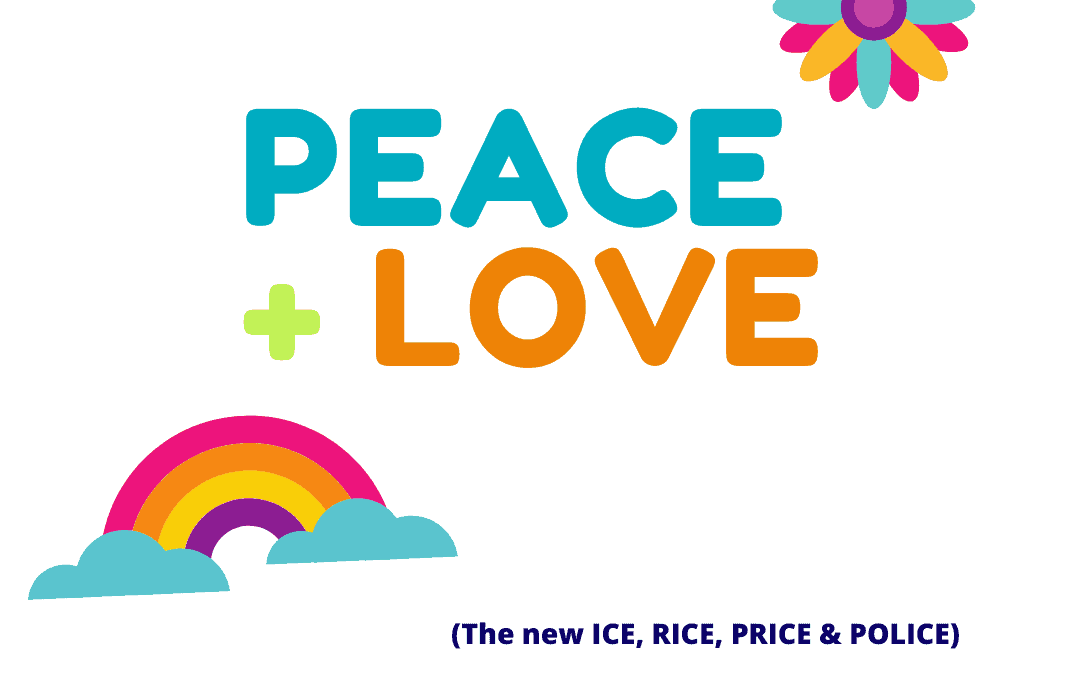The new answer to soft tissue injury treatment: PEACE and LOVE
Welcome to the new approach to soft tissue injury treatment: from the immediate care through to the ongoing management
Don’t worry, we haven’t gone back to the ‘60’s and started wearing flares again! PEACE and LOVE is an acronym for the new way to treat soft tissue injuries, such as a sprain or a strain.
You see, the old ICE (Ice, Compression, Elevation) and RICE (Rest, Ice, Compression, Elevation) and other catchy acronyms we’ve learned over the years have moved on and now we’re in the flower power 2020’s with PEACE, for the immediate care, and LOVE for the management of your injury.
How does PEACE and LOVE help with soft tissue injury treatment?
PEACE
PEACE is the first approach recommended by the British Journal of Sports Medicine (BJSM) for the immediate care for soft tissue injuries such as strains and sprains. This should be started as soon as the injury occurs to protect your injury and promote healing.
So, let’s see what it means.

PEACE stands for:
P – PROTECTION. The one is a no-brainer. It suggests that you protect your injury by avoiding any exercise or movement that increases the pain for the first few days following your injury. Time to listen to your body!
E – ELEVATION. This is a golden oldie and still a great tip to this day. Elevate your injury higher than your heart as often as possible. A good excuse to catch up on Netflix.
A – AVOID anti-inflammatories. Now, this is a newbie to the scene. Anti-inflammatories (such as Ibuprofen) used to be the go-to for injuries that swelled up. But not anymore. It’s recommended to let the swelling do its thing. When your injury swells, it’s your body’s natural response to the injury and a form of healing. That means you should also avoid ice for the same reason. No need to keep that spare bag of frozen peas in the top of the freezer anymore.
C – COMPRESSION. To reduce the swelling, you can use a tight bandage or taping to compress the injury. This would work well if you’re injured around Halloween and you’re off to a fancy dress party.
E – EDUCATION. This one is about letting your body do its thang and not popping off to the GP for advice unless absolutely necessary. Try to resist reaching out to every health practitioner you can Google and give your body a few days to heal itself. Maybe this one should be ‘Elegantly lie around at home and avoid medical investigations’? You can thank us later BJMS.

LOVE stands for:
Love is all around. Or, in the case of a soft tissue injury, it’s what you should do to manage the injury once you’ve finished all the PEACE tips outlined above. LOVE is the ongoing management side of your soft tissue injury treatment.
Let’s smooch up and see what LOVE is all about (hands where we can see them, please):
L – LOAD. Your injury will tell you when you’re ready to increase the load, or keep the load off. So listen carefully. Shhhhh…
O – OPTIMISM. The ‘O’ is all about your brain behaving and reminding your body that YOU GOT THIS. Stay positive, be confident and use the force. Maybe not the last one.
V – VASCULARISATION. Now this is a big word for a fairly easy acronym but it’s still important. The V recommends finding exercises that will get your blood pumping (increase your blood flow) to promote healing but that won’t increase the pain to your injury. You may need to switch to a new exercise for a while to train safely.
E – EXERCISE. Now, it’s time to get back to the status quo. Adopt an active approach to your recovery (with our help, of course) and before you know it, you’ll have your strength and mobility back.
Are you ready to embrace the new approach to soft tissue injury treatment?
The new approach to treating sprains and strains is designed to cover the full continuum of your soft tissue injury, from the immediate care through to its longer-term management.
PEACE and LOVE is a holistic approach to treating a wide range of injuries and takes into account the wider issues, such as education, positive mindset, and the importance of an active recovery (which we love here at PPG). Avoiding anti-inflammatories and ice packs is a new one and might take a while to get used to – but the evidence is there to support it, so if possible, let your body just do its thing.
So what do you think? Is it time to ditch the ICE and embrace the PEACE and LOVE? We think so!
Get in touch for some PPG LOVIN’
If you’ve got any questions about how to manage your sprained ankle or achy wrist, don’t hesitate to get in touch with the team. Our approach is always to find a way to keep you moving, as long as it’s safe and pain-free.
We create tailored plans for every patient and use a handy app on your phone where you can refer to your treatment plan easily and log your activity for the day.
We’ve got lots of PEACE and LOVE to spread around – book in online or get in touch with the ever-lovely Di who’ll answer any questions and book you in. Just call 0497 111 127.
Peace out.

